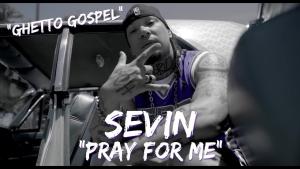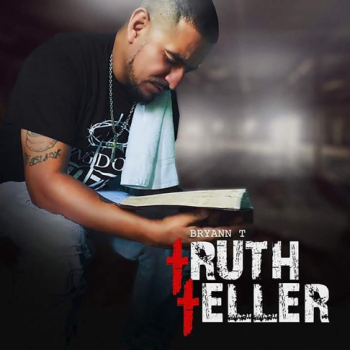Hip Hop for Soul Survival

There’s no secret that Hip Hop has both a direct and underscored ability to contest issues of socio-political, pedagogical, and ethnic differences. Building upon the classic 4 Principles of Hip Hop (cut/mix, rupture/flow, sermonizing, layering) this intersectional discourse, as a cultural agent, has secured itself firmly within the core dialectics for academics and Hip Hop Headz alike.
Early Hip Hop scholars who were equally invested in other areas of epistemological discourse used Hip Hop’s agency to dismantle locations of space/place/time. In a collaborative context, these factors display a healthy portion of intellectual rigor, physical dislocation, sonic narrative, and resistance agency. When these structures are embraced by a faith-based discourse their application for dialogue within a larger non-faith-based community is centralized.
Christian Hip Hop can talk to/talk back with contemporary culture without the fear of losing its invested identity. Yet, there are movements and artists within the Christian Hip Hop canon that utilize this energetic change agency for their benefits and profitability similar to a Prosper-Mega Church mentality. Where the roots of Hip Hop were to contest inner city oppressions when transposed by those seeking to profit through a niche audience, a Christina Hip Hop Prosper-Mega Church mentality. breeds a toxic reality misunderstood by non-faith-based audiences.

An Apostic reality embedded within the Christian deconstructive ideology has found a willing alley in artists who magnify the Prosper-Mega Church mentality of Christian Hip Hop. Tim Barnett, positions the deconstructive movement as being, “a postmodern process of rethinking your faith without regarding Scripture as a standard.” Though this may appear to open a dialogue between those who question and abandon faith-based foundations of Scripture for a self-centered methodology of understanding faith, Barnett’s statement shifts the onus of faith-based responsibility onto an external philosophy without regard to how this affects the foundations of faith. This is the driving force that has propelled Prosper-Mega Church mentality Christian Hip Hop artists to the top of record charts, both faith and non-faith-oriented. In terms of Christian Hip Hop, can it be said then that such Prosper-Mega Church mentality artists are cultural apostasy representations? This profiling corners the argument for the need for Prosper-Mega Church mentality Christian Hip Hop artists as those who hold the proverbial microphone that broadcasts false narratives about the importance of Christian Hip Hop. Non-faith-based listeners will automatically be drawn to the unassuming guise of Apostasy Christian Hip Hop. Whereas a faith-based listener may be more adept at recognizing the inconsistency in the expression for those Prosper-Mega Church mentality Christian Hip Hop artists and Apostasy Hip Hop artists.
Can Christian Hip Hop survive? Apostasy and Deconstruction Christian Hip Hop
Talking points of cultural theory? Community activism? Privilege or Roots? Woke ideology or genocidal practices? Deconstruction or faith-building? Each of these elements surrounds the dialectic of contemporary Christian Hip Hop.
The post-modern faith-based iconic statement, deconstruction references how one has removed themselves from a doctrine of faith and “discovers” their faith through alternative self-belief modulations and recent 20th/21st-century ideologies of cultural consumption to replace spiritual investigation and realities.
The lingering and ever-present value of a growing deconstructive movement calls into question intriguing questions as applied to Christian Hip Hop. To begin a critical analysis of Christian Hip Hop, concerning these emerging alternative doctrines, there needs to be a systematic realization of two butting camps of Christian Hip Hop. One camp can be identified as being founded upon a Prosper-Mega Church mentality Christian Hip Hop that is secured by Apostasy Hip Hop artists. The counter to this is Christian Hip Hop which secures its identity upon conscious scripture inclusion and is active in a local grassroots orientation. This methodology of Christian Hip Hop can be noted as Discipleship Christian Hip Hop.

One Christian Hip Hop artist who has been vocal about his faith deconstruction is Lecrae. In a February 2022 podcast, Lecrae discusses his deconstructive process and, as he sees it, the value of contemporary Christian Hip Hop: Lecrae, I had to DECONSTRUCT my Christian faith and here’s WHY...21 February 2022.
Lecrae does not stray away from his open deconstruction process (c.2016) and aligns this with how he developed his faith. Equally, he positions Woke ideology from a correct epistemological perspective and history. Through Lecrae’s continued use of Woke-ism he modifies Woke ideology as it has come to be referenced in a biased popular culture narrative; a symbol for privilege and socio-political power embedded in a pejorative discourse of race, identity, and equity.
If Lacrae is to remain true to his faith deconstruction as underscored with an opaque woke dialectic, the Merriam-Webster definition aptly applies, “self-aware, questioning the dominant paradigm and striving for something better.” The complication arrives at the juxtaposition of faith deconstruction and how the original theory of woke-ism intertwines in the proclamation of Lacrae’s Hip Hop and market-branded identity.
Lacrae is quick to support his views of deconstruction to the point of encouraging others who may be struggling with their faith to engage in this practice. In his video monologue, “I Deconstructed – This is What Happened,” on 14 November 2023, Lacrae frames a denial of legalist spiritual philosophy in exchange for an off-centered view of Christianity equated with a prosper-mega church agenda. Astute as Lecrae is, he binds together philosophical criticism in opposition to faith-based spiritual practice. Praising intellect and analysis to broadcast an agenda in support of reductive faith that usurps millennia of scripture and the core principles of Christianity, Lacrae weaves his audience goers through a labyrinth of selective philosophical doctrine. Replacing stable Christian scripture in a bait-and-switch model that presents itself as a secure modern direction in support of abandonment of faith allows Lacrae to embrace the hallmarks of a Prosper-Mega Church mentality. The dangerous pitfalls of faith deconstruction that Lacrae praises as actual bridges toward a self-centered realization of how Christianity can – should? – be practiced is just that; a self-centered scripted narrative of how Christianity is to be viewed absent from a firm faith-based context. The analysis of Christianity and repetitive concertizing of deconstruction removes the application of faith for that of a moral reference. Limiting Christianity to a static immobile external character opens a Pandora’s Box for one to enter into with the security of personal prosperity and a lack of faithful trust and belief in scriptural evidence that one is free to reject. The ironic turn in such Prosper-Mega Church Christian Hip Hop is that there is an undercurrent of Apostasy. Following this projection Christian Hip Hop at this level is devoid of sound scripture teaching and is as toxic in contact as it circumnavigates an Apostasy of faith. The exchange of faith for prosperity is evident. The shroud of deconstruction does not hide the agenda of Christian Apostasy Hip Hop.

Further examples include interviews with Lecrae and KB:
Lecrae, Deconstruction (official audio), 3 November 2022.
KB, Southside Rabbi, Season 1, Episode 5, 22 October, 2019
KB shares the inspiration and motivation for his 2019 single, “Lincoln.” KB shares his views, and perspectives on art, theology, Woke agenda, and culture.
KB (featuring Lecrae), Miracles, 10 August 2023.

Will Christian Hip Hop Survive? Discipleship Christian Hip Hop
In counter to the Prosper-Mega Church Christian Hip Hop mentality is a more grassroots-oriented form of Christian Hip Hop. Artists who engage in this vernacular operate in a style that is reminiscent and can be traced back to street preachers. Soulwinning notes the value of street preaching as being “consistent” with how “the message” (read: scripture and gospel) is to be shared. The immediate access to the gospel and scripture readings as performed through a street preaching dialectic has remained central to how the Word has been shared since the origins of the Christian doctrine. This form of gospel teaching can reach wide, mixed, and otherwise unassuming audiences. The ability for a street preaching dialectic to be mobile and centered within a focused community provides another level of immediate access that side-steps building worship practice.
Capturing these collected points Christian Hip Hop artists who follow this process consciously or unconsciously center their artistic expressions along the lines of discipleship. Scripture and the gospel are shared within a foreign or domestic community with an unbiased purpose. Organic audience attention and participation are liberated onto an equal level. There is a strong approach to articulate the process and action of repentance for discipleship Christian Hip Hop artists. This honest approach to the personal, spiritual, and artistic journey for a discipleship Christian Hip Hop artist is in contrast to Apostasy Christian Hip Hop. Discipleship Christian Hip Hop is firmly rooted in the teachings of the bible, the witnessing of repentance, conveying a personal testimony, and an honest sharing of the Word of God. The implementation of these elements yields an interesting motley crew of Christina Hip Hop artists who continue to use Hip Hop vernacular as their mission lexicon.

One such Christian Hip Hop artist is Sevin. In his testimony, Sevin discusses the realities and challenges that brought him to his faith-based position. Using the agency of Hip Hop Sevin systematically displays his works in the battlegrounds of his local environment that at one time ruined his life. Sevin openly discusses his transformation within, Sevin, Testimony, “From Gangs to God, 18 January, 2018
The events that brought Sevin to move from a defeated life filled with gang violence, suicide, and jail to one that is faith-centered and focused on personal ministry point to an objective strategy used by discipleship Christian Hip Hop artists to reach their audiences. The expressive lexicon of Hip Hop centered in Sevin’s work operates as a cross-cultural agent connecting his testimony and subsequently sound doctrine to faith and non-faith Hip Hop audiences. This element rounds out the core principles and elements that define Discipleship in Christian Hip Hop: community-centered, use of scripture, repentance, and personal testimony.
Further examples of Sevin’s Discipleship Christian Hip Hop can be reviewed:
Sevin, Christian Is My New Gang, 10 October 2018.
Sevin – Somebody Lied To Us, (The TRUTH about gang culture) @sevinhogmob featuring H.U.R.T., 19 September 2017.
This action-meaning-content/context is nearly a 180 degree alternative to the Propser-Mega Church mentality outlined previously. In company with Sevin, Bryann T authored a track Street Apostle. The narrative in this track illustrates each of the elements core to Discipleship Christian Hip Hop: viewed in a community context, use of scripture, and personal testimony.

Will Christian Hip Hop Survive? The Battle for Authenticity
The concept, ideological philosophy, and practice of religious deconstruction bring a controversial point to this analysis. The reality that numerous Christian Hip Hop artists have undergone a faith-based deconstruction underscores their work. This personal directive one could argue, removes a scripture-based faith foundation within their work. This, then, aligns those artistic productions along the lines of a Progressive Christian ethic. Elsewhere I have recognized this subset of Christian Hip Hop as being a Mega Church Mentality, Progressive Christianity, or a Prosper Faith genre. Those Christian Hip Hop artists who have – or are currently – embracing a religious faith-based progressive deconstruction are more apt to embrace pop culture signifiers of Hip Hop as devices to speak to a larger non-faith-based audience. This action leads to an outsider’s stereotyped identity of Christian Hip Hop as being only marginally localized faith and grounded in consumer pop culture signifiers thus reducing the importance of a Christian doctrine in the artistic expressions.
The Prosper-Mega Christian mentality doctrine (read: Deconstruction of Faith) leads to the challenges one faces concerning their faith. In contrast, prolific Christian Hip Hop artists such as Sevin, ASAP Preach, Young Preacher, and Paul G. engage the Elements and socio-vernacular of Hip Hop to profile how faith has altered their lifestyle without sacrificing their lives. The image is not narrated by a social identity. Identity is narrated by faith. Hip Hop, then, is the vehicle through which these expressions – faith, belief, identity – are represented.
These counterpoint positions lean not toward ideological differences, but to an expressive contemporary apologetic trajectory. One side – a Progressive Christian, Deconstruction, Mega/Prosper Church mentality – visibly embraces pop cultural elements, signifiers, narratives, and social representations to formulate an identity produced by these marketable standards. A populist agenda of sub-pop identity frames their work. In contrast, those faith-based discipleship Christian Hip Hop artists formulate their expressive content on scripture and gospel doctrine. The foundations of identity for these faith-based discipleship Christian Hip Hop artists can be read as a contemporary apologetic discourse using Hip Hop as an expressive agent.

Compare/Contrast – Two views of critical theory and culture
Lacrea and KB, draw attention to Woke ideology and frame race/culture from a privileged cultural perspective. Sevin notes cultural and spiritual genocide as it affects inner-city communities.
Is there any common ground between these two camps? They each agree that there is spiritual warfare ongoing. Each agrees that the urban centers are polluted with opposition designed to eradicate cultures. Each agrees that class struggles and class strata exist. Each agrees that there are socio-political campaigns institutionalized to monitor and suppress cultures/communities through biased racist agendas. All that to conclude that each agrees and disagrees; there’s no agreement to disagree.
To borrow principles from calculus there is an organic connection that can be drawn to help further explain how these two contrary camps project a mixed identity of contemporary Christian Hip Hop.
The concepts of Differentiation and Integration explain how Prosper-Mega Church Christian Hip Hop varies from faith-based discipleship Christian Hip Hop. The integration of scripture and Christian principles within the expressions of Hip Hop culture vary and contradict each other from either a Prosper-Mega Church Christian Hip Hop varies from faith-based Christian Hip Hop. One perspective justifies culture over faith. The other seeks justification through scripture-centered action.
Given these elements, the differences between Prosper-Mega Church Christian Hip Hop vary from faith-based discipleship Christian Hip Hop are highlighted based upon audience attention, Hip Hop signifier used/integration, and scripture literature availability. As I argue, Prosper-Mega Church mentality Christian Hip Hop functions at the core of limitations, the infinite as described above. This limitation is articulated by the necessity of the deconstruction movement to reduce scripture to a conscious self-defined apparatus, one tangible and devoid of blind faith. Faith-based discipleship Christian Hip Hop ascertains an infinitesimal concept noting that consciousness, reality, and the necessity to understand unexplained processes are acts of God and His guiding power over all elements in the universe. This removes the desire to self-articulate activities and remain open to extra-realistic concepts beyond the recognition of man. Faith-based discipleship Christian Hip Hop follows the theme of the namesake coined here. Discipleship Christian Hip Hop does not reduce the factors of faith to a human level. Rather, the modus operandi of faith-based discipleship Christian Hip Hop is to articulate justification and sanctification through a personal narrative founded upon the pillars of Hip Hop.
The complicated crossroads of Christian Hip Hop have largely gone unreferenced. Turning a blind eye to these internal streams of influence and their incumbent impact on faith-driven and non-faith audiences contributes to the limitations of this important discourse. The argument outlined is not set to confirm one point over another. The directive of this critical work is to place a finger on the pulse of the current dialogues in Christianity and how these voices present, represent, contest, and challenge a status quo. The sobering reality is that the status quo is a non-faith cultural agent holding onto an agenda to dismantle doctrine. This ideological agenda is embedded within the growing Christian Hip Hop canon. Before this strategic attack gathers more traction in Christian Hip Hop it is important, now, to address the operations and manufacturers of this spiritual distortion.














